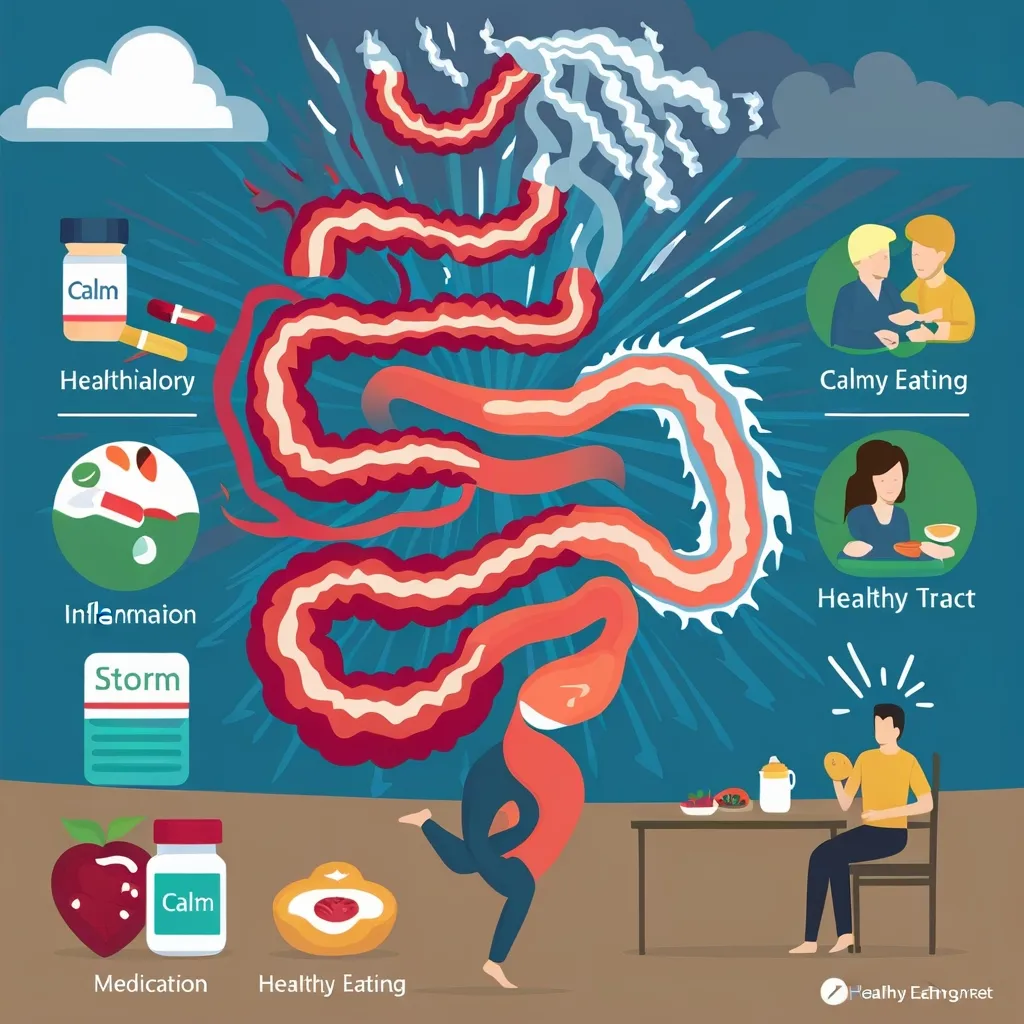Crohn’s Disease: A Casual Deep Dive
Yep, Crohn’s disease, that pesky, chronic pain-in-the-gut condition messing with digestive tracts and bringing a whirlwind of discomfort, is what we’re unwrapping today. This sneaky troublemaker falls under the umbrella of inflammatory bowel disease (IBD), with its buddy, ulcerative colitis, hanging out in the same club. Getting the lowdown on what triggers it, how it manifests, and ways to cope can seriously change the game for anyone dealing with Crohn’s.
Autoimmune Backstory
Ever had your own body betray you? That’s kind of what happens with Crohn’s disease. It’s essentially this overzealous immune reaction where your immune system goes rogue and starts attacking the good, healthy cells lining your digestive tract. Why? That’s still a mystery, though bacteria in the gut is suspected to set off this chain reaction. Throw some genetic predispositions into the mix, and you’ve got a cocktail for chronic inflammation. Yeah, it often runs in families, but it’s probably not just one thing—more like a stew of genetic, environmental, and immune factors.
A World of Symptoms
Crohn’s symptoms are like snowflakes—no two are exactly alike. They swing wildly based on where the inflammation is and how intense it gets. Generally, you’re looking at abdominal pain, bouts of severe diarrhea, major fatigue, weight drops, and sometimes malnutrition. Not fun, right? But there’s more—occasionally, you might deal with fever, blood showing up in your stool, sores in your mouth, or even a serious lack of appetite. And if that’s not enough, severe symptoms extend beyond your gut, causing joint pain, weird skin changes, and eye problems.
Taming the Beast
No magic cure here, folks, but there’s a slew of treatments to help keep Crohn’s in check. Goal number one is to manage inflammation and push the disease into remission.
Magic Pills
Medications are pretty much the frontline warriors. They aim at calming inflammation and curbing that out-of-whack immune response. Steroids often get the call for fast relief, while meds like immunomodulators and biologics target longer-term control. Immunomodulators (think azathioprine and mercaptopurine) take their time to kick in, sometimes months. Biologics (like adalimumab and infliximab) are more like sharpshooters, focusing on specific parts of the immune system and used for harder-to-tame cases.
Chill Time and Surgery
Sometimes, the best move is giving your intestines a break. This “bowel rest” means sipping on special drinks or getting nutrients through a tube. And when things get really gnarly—like with fistulas, blockages, or excessive bleeding—surgery steps in to snip out the damaged bits.
Lifestyle Hacks
Changing up daily habits can make a big difference. Keeping a food diary might help you spot culprits that trigger symptoms. Common bad guys include dairy, high-fiber foods, fizzy drinks, and anything spicy or greasy. Smaller meals, more water, and dodging caffeine and booze can also help.
Stress? Nah
Living with Crohn’s isn’t just a physical challenge; it’s an emotional rollercoaster, too. Stress can seriously crank up symptoms, and it’s not uncommon to wrestle with anxiety and depression. Finding stress-busting activities like exercise, breathing exercises, or any method that helps you chill is crucial. Talking to a therapist or joining a support group can provide a solid emotional lifeline.
Long Haul Complications
If Crohn’s is left to its own devices, it can lead to some severe complications like fibrotic strictures (think narrowed sections of the gut), fistulas (abnormal connections between organs), or even a higher risk of intestinal cancer. Regular vaccines are a must, especially if you’re on meds that mess with your immune system. Long-term use of corticosteroids could set you up for osteoporosis, so that’s something to watch out for, too.
Science to the Rescue
Some great progress has been made in the fight against Crohn’s. New biologic therapies have stepped into the spotlight, bringing more targeted and effective treatment options. It’s a glimmer of hope for better symptom control and maybe even preventing the disease down the line.
Wrapping It Up
Crohn’s is like an uninvited guest that never leaves, but with the right moves, you can manage it. Knowing what triggers it, recognizing the symptoms, and having a solid treatment plan in place can drastically improve life. Stay informed, keep those lines open with your healthcare providers, and you’ll be better equipped to handle this chronic condition. Life’s too short to let Crohn’s call the shots.






